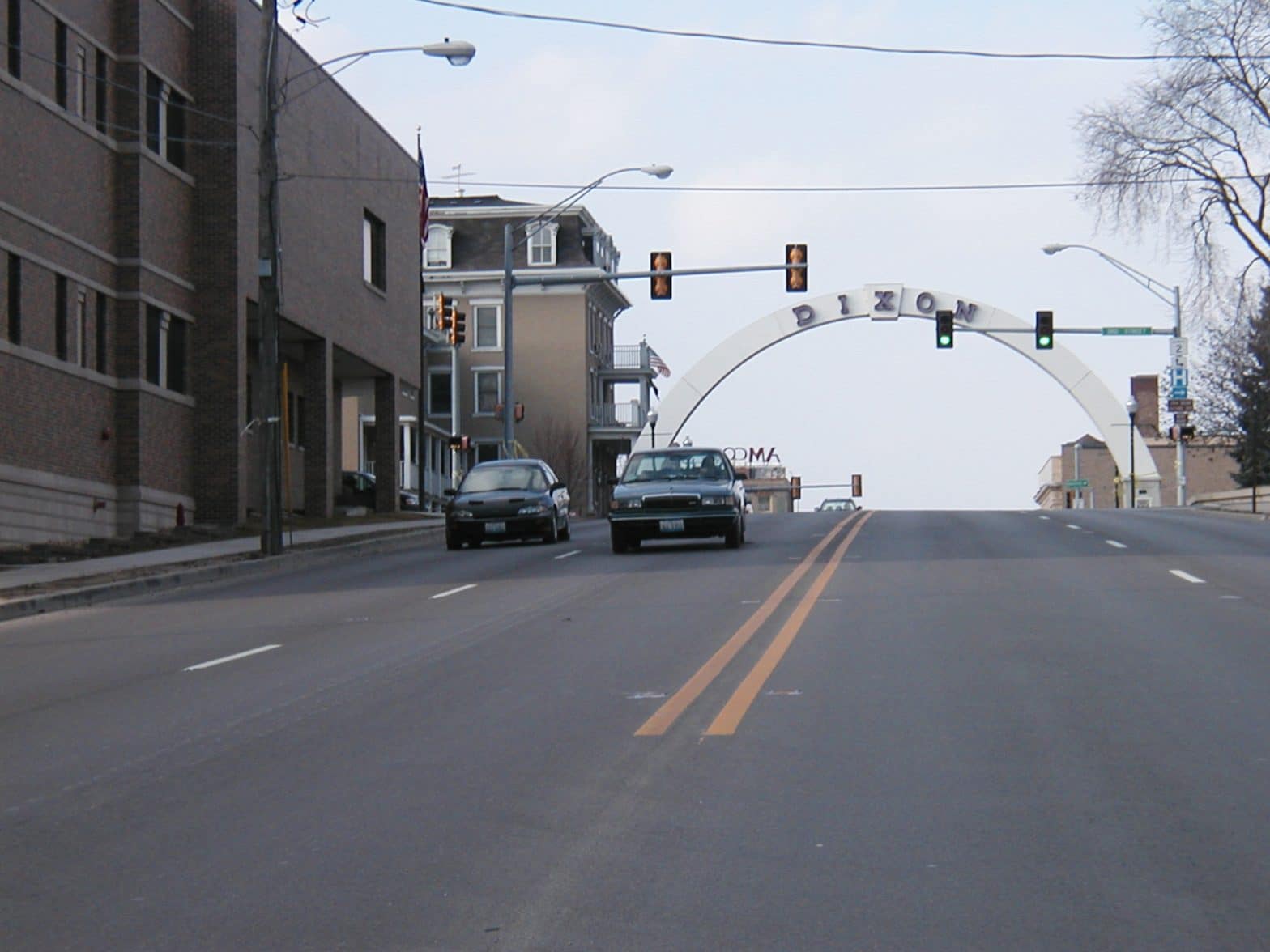A Failed State, How Illinois’ Opioid Crisis Collided With a Political Crisis
Part II: Peace With Honor

Opioids have overwhelmed rural Illinois. Desperate, the cops in Ronald Reagan’s hometown have stopped arresting people and started getting them help. In an exclusive series, The Well News looks at “Safe Passage,” a program that radically rethinks America’s War on Drugs. Read Part I: The Town That Raised Reagan Wants Out of the War on Drugs, Part III: Doctor Zero, How a Single Doctor Became His Own Opioid Crisis, and Part IV: ‘The Other Side of Me,’ How One Woman’s Redemption Offers Hope to Countless Others.
Dixon, Ill. — For a long time, the police of Ronald Reagan’s hometown did their best to arrest their way out of their drug problem. It became a war of attrition — and the opioids won.
A few years ago, Lee County authorities charged Linda J. Hoggard, then 59, with drug-induced homicide in the 2013 overdose death of her boyfriend, Jeffrey S. Scheuerman, 51, in Dixon. In the 18 months while Hoggard waited for trial, three key witnesses against her died — all in separate overdoses. Hoggard would eventually plead guilty to involuntary manslaughter and be sentenced to three years’ probation.
Meanwhile, the region’s opioid crisis collided with a statewide political crisis. Illinois’ social welfare system had consistently ranked at or near the bottom of the country for years. And, then, for two straight years, just as the opioid epidemic was taking on its ghastly dimensions, things got worse: There was no state budget in Illinois.
Republican Gov. Bruce Rauner — a hedge fund baron in the Koch Brothers mold — had his own war with Illinois House Speaker Mike Madigan — a Chicago Democrat who has been squaring accounts and fixing things since doctors were still selling cigarettes on television. Nothing got done. The state didn’t pay anyone who didn’t have a court order or a consent decree. A budget has since been passed, over Rauner’s veto, and Rauner has since been booted out of office, but Illinois’ bond rating teeters just above “junk” status (and Standard & Poor’s is worried that the opioid crisis could push the state over the edge).
The Trump administration has offered Illinois $16.3 million in grants for each of the next two years to help it come to grips with its opioid epidemic. Every little bit helps, of course, but, really, it’s a drop in the bucket: In 2015 alone, Illinois’ Medicaid system spent $22 million just to treat babies born addicted to opioids and other drugs, state records show.
“The governments have failed us miserably,” says Brent Bell, a certified physician’s assistant who is helping to put together class-action lawsuits against drug companies in several states, including Illinois, on behalf of those children born addicted to opioids.
“People just don’t realize the impact of this,” Bell says. “This is the biggest thing facing us right now, other than the threat of nuclear war.”
Grim Expertise
For all the damage opioids have done here in northwestern Illinois, they’ve also given locals a kind of grim expertise. A surprising number of people carry around naloxone, a nasal spray that is supposed to help revive overdose victims. (Between 2013 and 2015, the number of Illinois emergency room visits requiring at least two doses of naloxone jumped by 50% and the number of visits requiring three or more doses jumped by 75% over the same period: tops in the country.)
Dixon police Det. Jeff Ragan, who administers the city’s innovative Safe Passage program, says that he can often tell, just by someone’s gait, what kind of drug they’re abusing. He’s also getting better at writing grants. (There are no rehab centers near Dixon, so travel is a big problem. The federal government will reimburse drivers for gas and mileage; snacks are verboten.)
Volunteers, many of them recovering addicts, put together toiletry care packages — soap, deodorant, toothpaste, toothbrushes — to have on hand at the police station. That’s something few had thought about before Safe Passage started, Ragan tells me.
Early last year, Safe Passage received enough money through a state grant to hire five part-time rehab coaches, Ragan says. A great many people who’ve gone through Safe Passage have relapsed, many of them multiple times, he explains.
“We got volunteers to pick them up and drive them to a local facility,” Ragan says. “On the back end of that, we were lacking — once they get out, then what? It’s kind of hard to do our regular jobs as it is.”
Rehab coaches, he hopes, can help close the gap.
‘What Community Is All About’
Ronald Reagan left Dixon as a young man and rarely looked back, but he did return to celebrate his 73rd birthday in 1984. It was a big deal, having a sitting president come to that part of Illinois (even for liberals: somewhere, my parents still have the commemorative calendars my elementary school handed out.) In his speech here, he didn’t talk about his war on drugs. Instead, he focused on the evils of big government. And he held Dixon out as an example of how far a few volunteers with can-do attitudes can get you.
“Well, this community spirit responds to our desire for cooperation and brotherhood, and it makes our hometown a better place to live,” Reagan said then. “If anybody wants to know about community and what community is all about, come to Lee County and Dixon, Illinois.”
The gamble that local authorities are taking on Safe Passage suggests that they believe Reagan’s words might yet be true. But if those words do come true, they’ll be true in a way that Reagan himself could never have intended.
“We’ve got to change the narrative,” Ragan says, “before someone does it for us.”
Part I: The Town That Raised Reagan Wants Out of the War On Drugs
Part III: Doctor Zero, How A Single Doctor Became His Own Opioid Crisis
Part IV: ‘The Other Side of Me,’ How One Woman’s Redemption Offers Hope to Countless Others
—
Bill Myers lives and works in Washington, D.C. Email him at [email protected]. He tweets from @billcaphill.

























